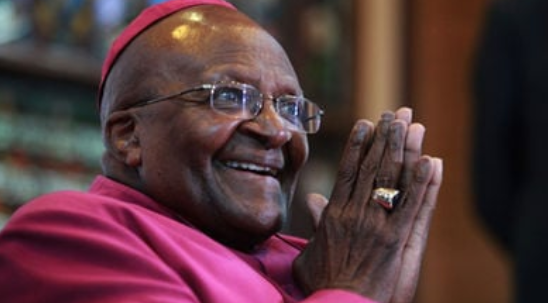South Africa's Nobel Peace Prize-winning activist for racial justice and LGBT rights and former Anglican Archbishop of Cape Town, Desmond Tutu, died at the age of 90 on Sunday, December 26. South African President Cyril Ramaphosa, in his statement on the passing of Desmund Tutu, called him a 'patriot without equal; a leader of principle and pragmatism who gave meaning to the biblical insight that faith without works is dead.'
Desmond Tutu's death is mourned by one and all on social media and otherwise. Tutu was diagnosed with prostate cancer in 1997 and had been hospitalized several times since 2015. he lived with his wife, Leah in a retirement community outside Cape Town in recent years. The cause of death was not clear at the moment.
Desmond Tutu was awarded the Nobel Peace prize in 1984. South African President Cyril Ramaphosa noted that from resistance in South Africa to the pulpits of the world's great cathedrals and places of worship, and the prestigious setting of the Nobel Peace Prize ceremony, the Arch distinguished himself as a non-sectarian, inclusive champion of universal human rights.

'I will not worship a homophobic god'
While the white government held power in the country in the 1970s and 1980s, the black community faced frequent bloody attacks. Desmond Tutu, however, stood firm on his nonviolent approach, which led him to win the Nobel Peace Prize in 1984 for being a unifying leader figure in the nonviolent campaign to resolve the problem of apartheid in his country.
When South Africa conducted its first democratic elections 10 years later, Tutu hailed the country's multi-racial society and called it 'rainbow nation.' He also warned that 'yesterday's oppressed can quite easily become today's oppressors.' Tutu even campaigned for LGBTQ rights claiming that he would worship a 'homophobic' god.
'Without forgiveness, there is no future'
Nelson Mandela had appointed Desmond Tutu the chairman of the Truth and Reconciliation Commission, a panel that bore the responsibility of investigating human rights abuses committed by pro and anti-apartheid groups. The committee's goal was to promote forgiveness amongst victims of apartheid. "Without forgiveness, there is no future," Desmond Tutu said.


